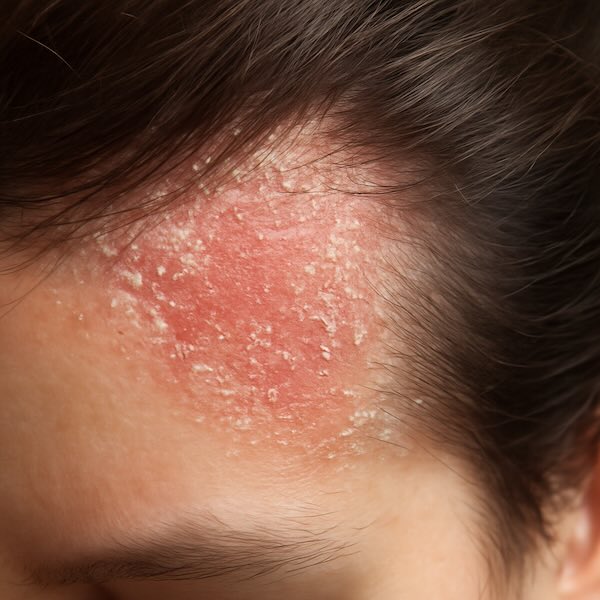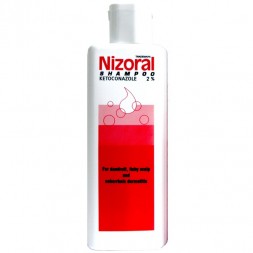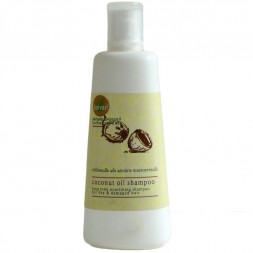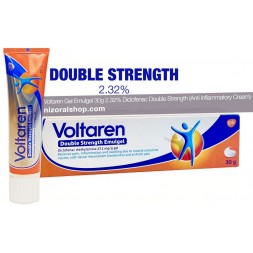
Seborrheic dermatitis is a common, chronic skin condition that causes red, itchy, and flaky patches on the scalp, face, and other oily areas of the body. While it isn't harmful, its persistent symptoms can significantly affect your quality of life. Fortunately, ketoconazole—a powerful antifungal ingredient—can effectively relieve and manage seborrheic dermatitis symptoms, restoring scalp health and comfort.
Let's explore exactly how ketoconazole, particularly found in Nizoral Shampoo 2%, can help manage your seborrheic dermatitis.
Understanding Seborrheic Dermatitis
Seborrheic dermatitis is a chronic inflammatory condition primarily affecting areas of your body rich in sebaceous (oil) glands. It’s closely linked to the fungus Malassezia, naturally found on everyone's skin. In people with seborrheic dermatitis, this fungus multiplies excessively, triggering inflammation, itching, and flaky skin.
Common symptoms include:
-
Persistent dandruff and flaky scalp
-
Red, greasy skin patches
-
Intense itching and discomfort
-
Scaly patches around eyebrows, nose, ears, or chest
Understanding these symptoms clearly can help you select the most effective treatment.
Why Ketoconazole is Effective for Seborrheic Dermatitis
Ketoconazole is an antifungal medication recognized by dermatologists for its efficacy in treating seborrheic dermatitis. It directly targets Malassezia, significantly reducing its population on the scalp, thereby calming inflammation and preventing flare-ups.
Clinical studies have repeatedly demonstrated ketoconazole’s superior effectiveness compared to regular anti-dandruff shampoos, making products like Nizoral Shampoo 2% an ideal choice for managing seborrheic dermatitis.
How to Use Ketoconazole Shampoo for Seborrheic Dermatitis
Proper usage is crucial to maximizing ketoconazole’s effectiveness against seborrheic dermatitis:
Step-by-Step Guide:
-
Apply to Wet Hair: Use lukewarm water to wet your hair and scalp. Avoid excessively hot water to prevent irritation.
-
Massage Gently: Apply a small amount of Nizoral Shampoo and gently massage it into your scalp, ensuring thorough coverage of affected areas.
-
Leave it On: Allow the shampoo to remain on your scalp for three to five minutes to enable ketoconazole to act effectively.
-
Rinse Thoroughly: Rinse out the shampoo completely, ensuring no residue remains on your scalp or hair.
Initially, dermatologists recommend using ketoconazole shampoo twice weekly for two to four weeks. Once symptoms improve, reduce use to once weekly or bi-weekly to maintain healthy scalp conditions.
Benefits of Regular Ketoconazole Use for Seborrheic Dermatitis
Regular use of ketoconazole shampoo provides several significant benefits:
1. Rapid Symptom Relief
Within just a few washes, you'll typically notice a visible reduction in redness, flaking, and itching.
2. Long-Term Control
Ketoconazole doesn't just relieve symptoms temporarily; it addresses the underlying fungal issue, offering long-lasting control and preventing frequent flare-ups.
3. Improved Hair and Scalp Health
Reducing fungal overgrowth and inflammation improves overall scalp condition, often resulting in healthier, shinier, and stronger hair.
Can You Combine Ketoconazole Shampoo with Other Treatments?
Absolutely. For persistent symptoms, combining ketoconazole shampoo with topical antifungal creams like Nizoral Cream can provide enhanced relief, especially for localized or stubborn patches.
Explore our complete range of scalp treatments at our Nizoral Shampoos page, ensuring comprehensive management of seborrheic dermatitis.
Additional Tips to Maximize Effectiveness
To further enhance the effectiveness of your treatment:
-
Avoid Harsh Products: Steer clear of harsh hair care products that can irritate or dry your scalp, exacerbating symptoms.
-
Regular Washing: Wash your hair regularly but not excessively. Balance is essential to keep your scalp clean without over-drying.
-
Stress Management: Since stress can trigger flare-ups, practicing relaxation techniques or stress management can help control seborrheic dermatitis symptoms.
When Should You See a Dermatologist?
If your seborrheic dermatitis symptoms persist despite regular ketoconazole treatment, consult a dermatologist. Persistent symptoms might require prescription-strength antifungals, anti-inflammatory medications, or further evaluation to rule out related skin conditions.
Effective Management is Possible
Seborrheic dermatitis might be persistent, but effective management is entirely achievable with the right approach. Ketoconazole shampoo, particularly Nizoral Shampoo 2%, offers reliable, clinically proven relief, significantly improving your scalp comfort and overall quality of life.
Make ketoconazole shampoo a cornerstone of your seborrheic dermatitis treatment today and reclaim a healthy, comfortable scalp once and for all.





